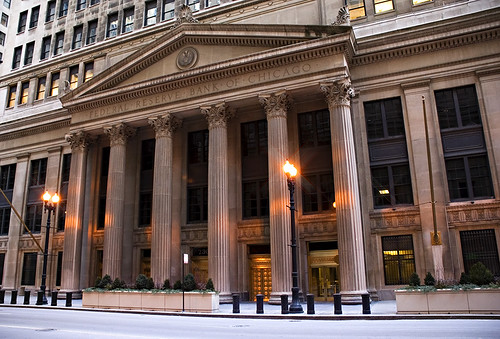I’m sure most of you have heard a story on the news about the Fed (Federal Reserve) raising or lowering the Federal Funds Rate. Did you pay close attention to the story?
What the Fed says about the Federal Funds Rate will affect your savings!
What is the Federal Funds Rate?
The Federal Funds Rate is a target interest rate that is set by the Federal Reserve. It directly affects the interest rate that is charged to a bank when borrowing from another bank. Banks are required to keep a certain percentage of funds in reserve in Federal Reserve banks. When funds fall below the reserve percentage they must borrow overnight to bring their reserves up to the required percentage. If a bank has more than the required reserve then they can lend the money to other banks.
When the Fed changes rates what they are doing is implementing monetary policy which helps promote national economic goals. What this does is affect how available money is in the economy. When the rate is low money is “cheaper” and banks are more likely to lend money out to businesses so they can grow. When the rate is high banks are less likely to lend which leaves less money available for businesses to borrow.
But how does the Federal Funds Rate affect my savings?!?
When the Federal Funds Rate changes banks change the interest rates on their savings accounts and their CD rates. The bank interest moves in the same direction as the Fed Funds Rate so when the Fed rate goes up your savings rate goes up and vice versa.
If you’re like me and have savings in a high interest savings account then you love getting that email that says your rate is going up (and curse when it goes down). This is a direct result of the Fed rate changing.
So you see what the Fed decides to do can directly affect your savings!
If it’s the Fed that changes the rate then what can I do about it?
Not much.
The Fed doesn’t exactly take a vote from the general populace. But you can prepare for the change and act on news to help maximize savings.
Understanding trends in the Federal Funds Rate can help you decide when to buy CD’s and for how long. Let me give you an example: A couple of weeks ago there was talk that the Fed was going to cut rates to help keep money flowing for the economy. It was pretty much a given that the rate was going to be lowered which meant my savings account interest rate would lower too. What I did was take some of my savings and buy a couple of CD’s to lock in higher rates before the rates were cut. I bought a 6 month CD at 3.75% and a 12 month CD at 4.25%. Sure enough the Fed cut rates and my savings account went down from 3% to 2.75%. (One of the great things about some online banks is you can open a CD with any amount).
By paying attention to the Fed rate in the news I was able to get a better rate on my savings!
When you hear “Federal Funds Rate” on the news make sure you pay attention because your savings rate may be changing!
![]() photo credit: swanksalot
photo credit: swanksalot


 Are you just starting off building up your savings? I’ve mentioned before that a great way to save is by putting money in a
Are you just starting off building up your savings? I’ve mentioned before that a great way to save is by putting money in a 